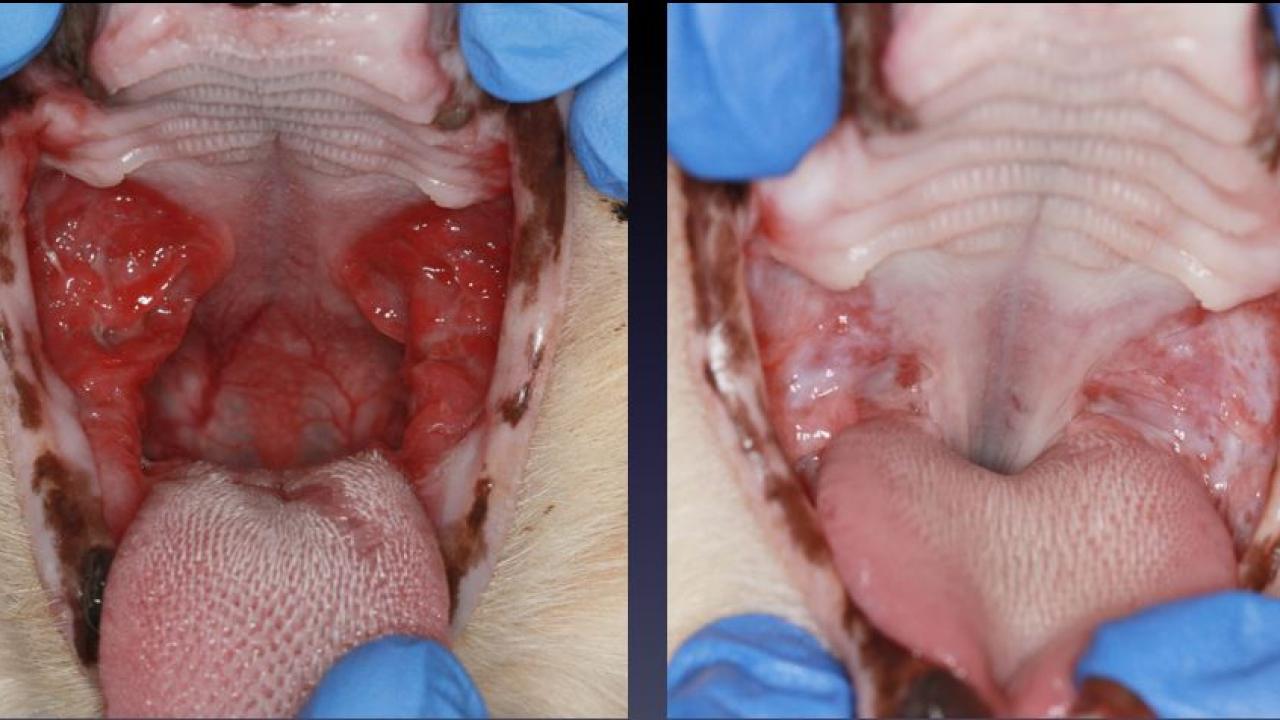
Veterinary Scientists Successfully Advance Treatment for Feline Chronic Gingivostomatitis
Veterinary scientists at the University of California, Davis School of Veterinary Medicine have completed a multicenter clinical trial testing the use of adipose-derived mesenchymal stem cells (ASCs) to treat a debilitating oral disease in cats. Having previously found positive results in a trial performed exclusively at UC Davis, the team of veterinarians and researchers found similar positive results when expanding the trial to another veterinary school and two private veterinary clinics. This further verification establishes protocol for the safe and effective use of fresh, allogeneic and autologous ASCs to treat feline chronic gingivostomatitis (FCGS). The results of the study were recently published in the medical journal Stem Cell Research & Therapy.
To meet clinical demand and goals for future commercialization of the treatment, Dr. Boaz Arzi, director of the UC Davis Veterinary Institute for Regenerative Cures and associate professor of dentistry and oral/maxillofacial surgery, in collaboration with Dr. Dori Borjesson, opened the trial to the Cornell University College of Veterinary Medicine, as well as private dental specialty clinics in Mill Valley, California and Lake Oswego, Oregon.
“An important item that we needed verification on was the feasibility of shipping fresh ASCs to distant clinics,” said Arzi. “So we extended our pilot studies beyond UC Davis. This allowed us to establish safety and efficacy data for shipped and non-shipped ASCs.”
The team found that ASCs received within 24 hours of initial shipment retained their viability, phenotype, and function to successfully treat FCGS.
The expanded study also showed that 72 percent of the 18 cats treated in the trial exhibited positive results, an identical success rate proven in previous trials conducted exclusively at UC Davis.
“This further proof of success at other clinics is an exciting step forward that ASCs are suited to become the accepted protocol of care to treat FCGS in cats that don’t respond to conventional therapy,” Arzi said. “We are equally excited for our human medicine counterparts, as this research gives hope for the advancement of the treatment of human oral inflammatory disease, which shares similarities with FCGS.”
Arzi’s team has received patent approval for the ASC product in Europe and is currently negotiating approval in the United States. Collaborating with a licensed stem cell producer in California, the team will work with the Food and Drug Administration to start a countrywide clinical trial to move the product toward FDA approval.
Funding for this research was provided by the Winn Feline Foundation and the UC Davis Center for Companion Animal Health.
# # #
